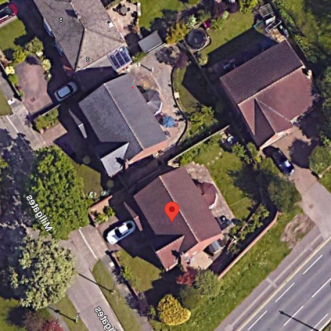May 26, 2023
You’ve probably heard of Charles Babbage as the inventor of the earliest form of computer. You probably haven’t heard of him as an analyst of manufacturing – a Taylorist long before Taylor:
“(250.) We have seen, then, that the effect of the division of labour, both in mechanical and in mental operations, is, that it enables us to purchase and apply to each process precisely that quantity of skill and knowledge which is required for it: we avoid employing any part of the time of a man who can get eight or ten shillings a day by his skill in tempering needles, in turning a wheel, which can be done for sixpence a day; and we equally avoid the loss arising from the employment of an accomplished mathematician in performing the lowest processes of arithmetic.
(251.) …there are a hundred and two distinct branches of this art [watchmaking], to each of which a boy may be put apprentice: and that he only learns his master’s department, and is unable, after his apprenticeship has expired, without subsequent instruction, to work at any other branch. The watch-finisher, whose business is to put together the scattered parts, is the only one, out of the hundred and two persons, who can work in any other department than his own.
(252.) In one of the most difficult arts, that of Mining, great improvements have resulted from the judicious distribution of the duties; and under the arrangements which have gradually been introduced, the whole system of the mine and its government is now placed under the control of the following officers.
- A Manager, who has the general knowledge of all that is to be done, and who may be assisted by one or more skilful persons.
- Underground Captains direct the proper mining operations, and govern the working miners.
- The Purser and Book-keeper manage the accounts.
- The Engineer erects the engines, and superintends the men who work them.
- A chief Pitman has charge of the pumps and the apparatus of the shafts.
- A Surface-captain, with assistants, receives the ores raised, and directs the dressing department, the object of which is to render them marketable.
- The head Carpenter superintends many constructions.
- The foreman of the Smiths regulates the ironwork and tools.
- A Materials-man selects, purchases, receives and delivers all articles required.
- The Roper has charge of ropes and cordage of all sorts.”
Charles Babbage, from “On the Economy of Machinery and Manufactures“.
Babbage was an abolitionist. He could afford to be. He had found a way of applying some of the technologies developed to control plantation slaves (division of labour, supervision, surveillance through record keeping) to the ‘free’ workers of his native country, so that an industrialist could extract the maximum value from their work at minimum cost and minimum risk of revolt.
He was in at the beginning of a long tradition of thinking of business as machines, and trying to turn humans into robots.
In my own small way, a few amazing small businesses at a time, I’m trying to reverse this by:
- Enabling a business to structure itself around the value they create for their clients, rather than the means of controlling the workforce, and to give everyone who works in it access to ‘the big picture’ of what, who for and why.
- Enabling everyone inside the business to take responsibility (not necessarily the execution) for the entire end-to-end process of making and keeping promises, and gain the satisfaction of doing the whole job. And/Or to negotiate what processes or activities they perform according to their strengths, personailities and interests and those of their fellows.
- Supporting people with a framework that gives them (and the business as a whole) confidence that they doing the right thing, along with the freedom to adapt it as they see fit to suit their own personality, the situation and the client in front of them.
- Eliminating the need for managers and administrators. People manage processes, not other people, and admin is a side-effect of doing the job.
- Replacing record-keeping with feedback, immediately and transparently shared to the people running the process, so they can use their judgement on how to deal with exceptions or improve the system.
In a nutshell, to turn an amazing business into a self-managing ecosystem, that can scale, evolve and make more impact because everyone in it is ‘the boss’.
The original boss disappears, not because they leave, but because they have blended in. And when they need to leave, they can, easily, without having to lose the business too.
Discipline makes Daring possible.
Ask me how.









